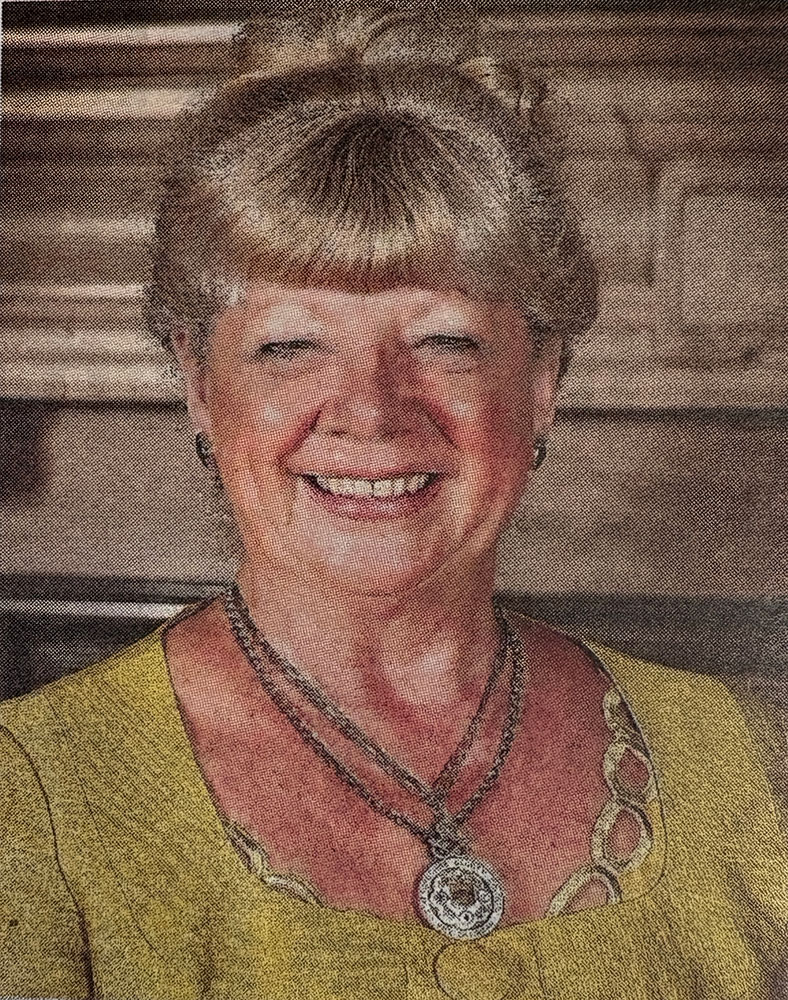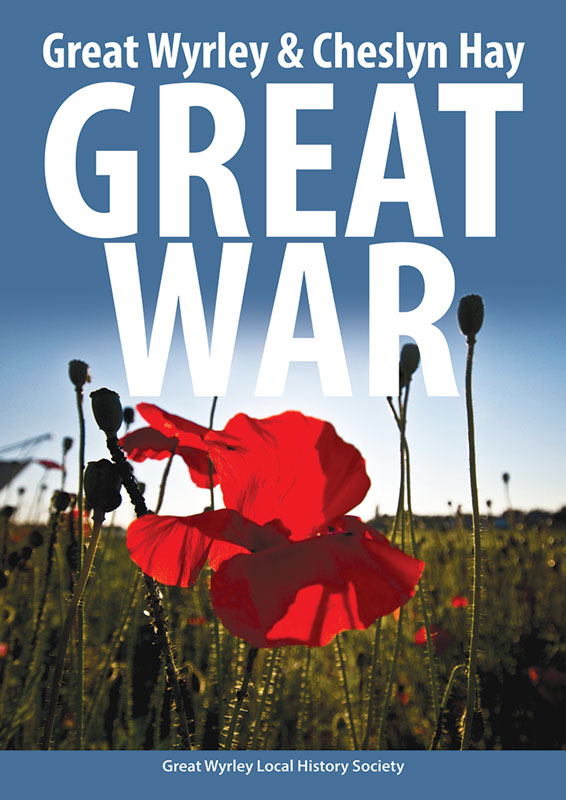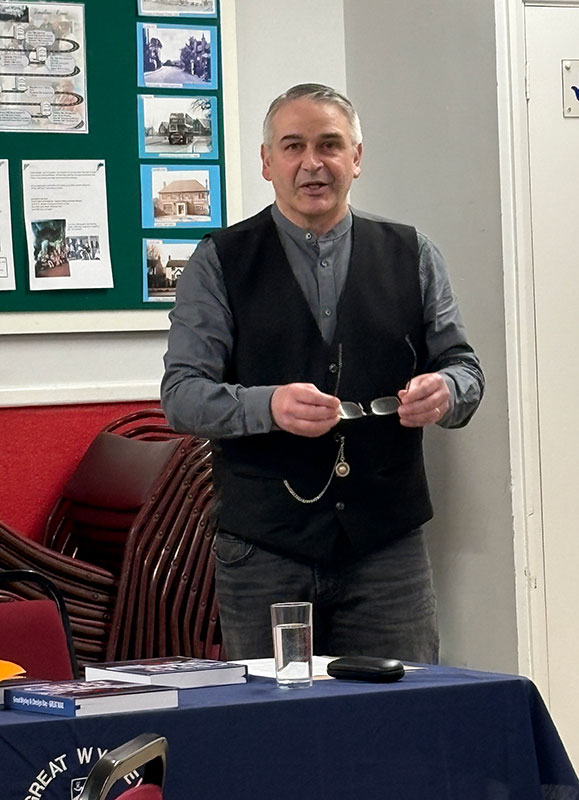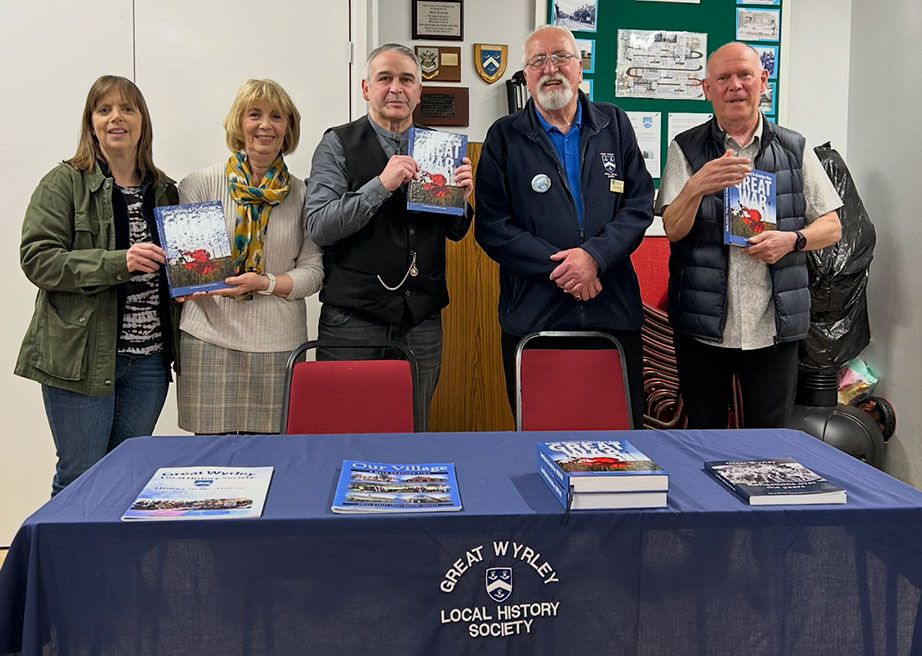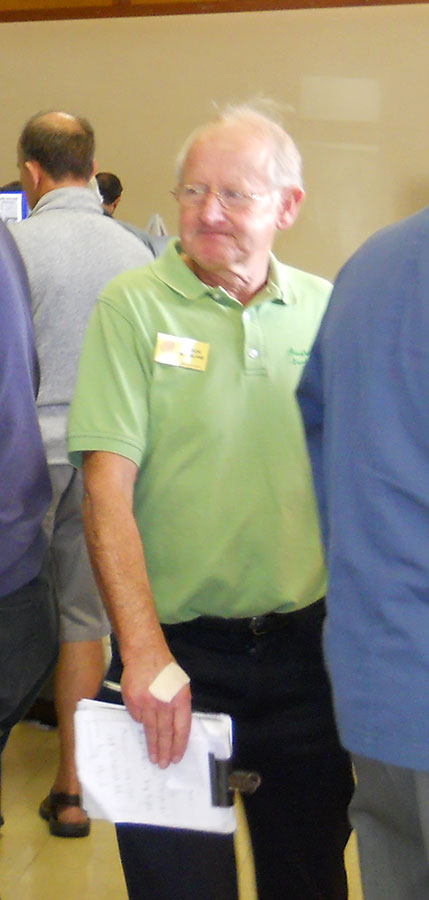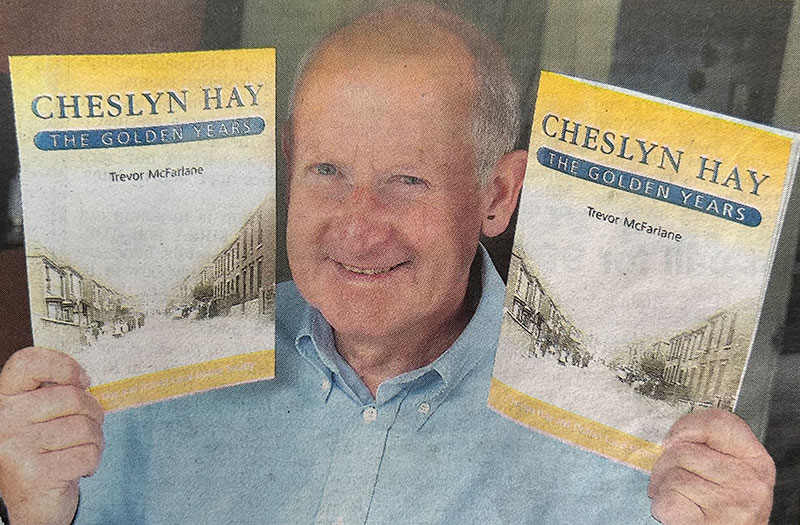The villages are getting closer together as the boarder between Great Wyrley and Cheslyn Hay is starting to blurr.
Full plans have been lodged for the construction of more than 100 new homes on land between Cheslyn Hay, and Great Wyrley. The scheme is for 130 dwellings, public open space, allotments, linear park and groundworks and infrastructure on land south of Landywood Lane. Details of the application by Cameron Homes can be viewed at South Staffordshire Council. Deadline for comments is April 16 by going online via staffs gov. uk/planning or via email to planning@sstaffs gov.uk
The notice also states: “All representations will be made publicly available. ln the event of an appeal that proceeds by way of the expedited procedure, any representations made about the application will be passed to the Secretary of State and there will be no opportunity to make further representations.”
Tribute paid as councillor Kath Perry set to retire
Councillor Kath Perry, who represents Cheslyn Hay, Essington and Great Wyrley, joined the council in 2005. We are set to loss a great lady on the Staffordshire County Chamber after she retries at the end of April 2025, she’s done great things and has made a big difference within the village.
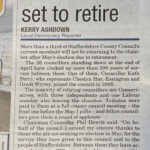
D.W. Clarke & Son Ltd in Cannock
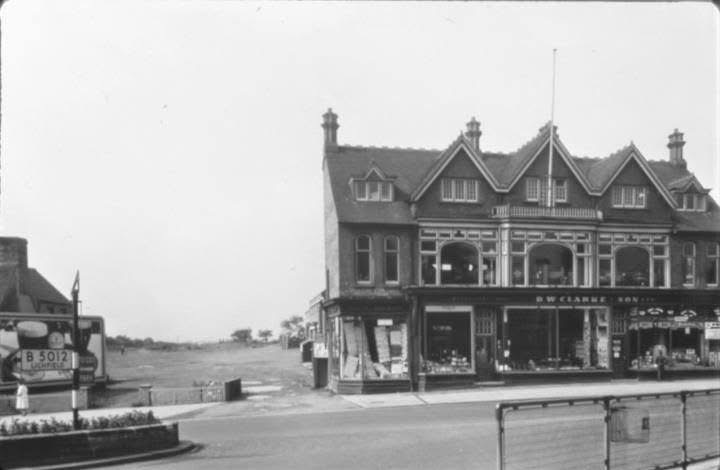
The Great War – Book Launch – 24th March 2025
We have had a great evening at the launch of our new Great War Book by Paul Ford. It has taken over 7 years to gather all the information. Helen Ralphs and Andy Parsons have also contributed to this book, adding in their own part of family research. This book wouldn’t of been possible without Roy Myatt that helped get the Lottery Grant that funded the book. Paul Ford spent many years, back and forward to Staffordshire archives researching the information about the soldiers on the Great Wyrley Memorial Gates. This book is not for sale, but will be available on loan from the History Society and Libraries in the area.
This book is arranged into three sections. The first examines Great Wyrley and its neighbours from just prior to the war, through the war years (broken into the individual years to reflect the change), into the post-war period. Each of the war years starts with the important military events, followed by views on more specific home-front topics: understanding the war, views on the enemy, joining-up and shirking, government control of the people, the hardship created by the war, the supporting of the war effort, and trying to go about ‘business as usual.’
The second section is what | was asked to do by the Great Wyrley Local History Society, which is a write-up of the Wyrleyblog project. It opens, however, with further notes on the memorial garden, focusing on the theft of the memorial gates in 1987 and the naming errors that were created by that theft. It goes on with an examination of the names of the fallen soldiers on the replacement plaques to provide both a basic identification and an accepted spelling for their name. This evidence was used to commission the new memorial stone.
The section then goes on to tell the basic life stories of those soldiers that are on the new memorial. This includes one soldier who is not on the old plaques but ironically is on the plaques for those that served and survived. There is no right or wrong way of organising these biographies, however, to be true to the learning curve of the project, I decided to keep them as separate stories and displayed in the order that I researched them. This means that some information is repeated (and it will be noticeable), as the stories were written over years and were never designed to be in read all together in a book format.

Section three is an eclectic mix, which is designed to encompass both community and life. It brings in different authors, Andy and Helen, who will be reflecting on the war experiences of their own ancestors and so have insights that cannot be matched. They also, refreshingly, talk about soldiers that survive.
For my parts, I chose four different tales. One story is that of Frank Emberton: he was the most highly decorated ordinary soldier to appear on a Wyrley memorial, being awarded the Distinguished Conduct Medal, yet he was more involved with Bridgtown and Cheslyn Hay than Great Wyrley. A second story is that of Wallace Lawson: Lawson was from Cheslyn Hay, but died while returning home and now rests permanently in Great Wyrley cemetery. It is impossible to track everyone that lived in Great Wyrley and then left, going on to be killed in the conflict, however, I wanted to find an exemplar to represent such people in order to show they are included in spirit: as such, the third story is that of the Chilton family, once of Churchbridge. The final story looks at a community within a community, with the experiences of the Landywood Working Men’s Club (Lower Landywood WMC, and now Harrisons Club) over the conflict.
The fact that the Great War was a savage conflict is not disputed, but many have written the conflict off as a ‘bad war’ as the positives that came from it – true democracy and social emancipation for both the working class and women – are seemingly forgotten.
Why? Possibly because of its re-evaluation in light of the Second World War, as it proved that the ‘war to end all wars’ was a naïve hope. The Great War would have the indignity of being relegated – becoming the First World War – and then face further questions as to why it was fought and what it actually achieved: at least the Second World War, it was understood, was fought against an abhorrent ideology.
Most people’s connection to the Great War today, if not from family memorabilia, museums or archives, comes from viewing its war memorials. These memorials have usually been amended to reflect the fallen from the Second World War and this often shows the disparity between the military fatalities from the two wars simply adding to the feeling of ‘waste.’ Originally, such memorials were seen differently: they were places of pilgrimage to mourn the inaccessible fallen and through their use of language (‘honour,” freedom’ and ‘sacrifice,”) a justification of the war – that the men died defending country, family and noble virtues. A message – as the memorials investigated in the book show -aimed at the young and unborn generations as an example of duty.
After the war the country struggled to find different ways to understand, commemorate and interpret what the war had actually meant: initially, celebration was juxtaposed with two-minute silences, and reflective tree plantings with the exhibition of captured artillery. Over time, it was the sombre reflection of mainly non-combatants that won out; this, it can be argued, is evident when looking at the responses to gifts of captured German militaria offered to both Great Wyrley and the Cheslyn Hay Parish Council.
The sad loss of Trevor McFarlane (CHDLHS Ex-Chairman)
We received the sad news about Trevor McFarlane passing away the start of March. On behalf of Great Wyrley Local History Society, may I send my deepest sympathy to Janet (Trevor’s wife) and family. Trevor will be greatly missed by all that knew him. He was the Chairman for Cheslyn Hay District Local History Society for many years and built the society up to a great standard. Trevor always liked to be busy, even after he retired from being Chairman a few years ago, he still liked to be in the ground helping out. It was only a few weeks ago that Trevor was out and about helping to deliver our latest book, so it came as a big shock to hear of Trevor passing away. He was a great organiser and would always get the job done. I’m sure if there is a place for an organiser in heaven, it should surely go to Trevor.
I first know Trevor McFarlane back in 1966, we was part of a team. A group of us lads on the Caddick Farm formed a football team, from a Residents Association beginning, we were known as Caddick Rangers a rag tag mob with a borrowed kit and no pitch. To my knowledge, the men in the original team that played are nearly all gone now.
Going back about 20 years, I found out that Trevor had took over as Chairman for Cheslyn Hay and District Local History Society. It wasn’t till I formed Great Wyrley Local History Society with the help of Trevor Pearce and Terry Challenger, that I got back in contact with Trevor, who was instrumental in the start up of Great Wyrley Local History Society, by allowing us to have access to their photograph archives. Through their photo archivist (at the time, Sue Challenger) all photographs related to Great Wyrley, were transferred over to GWLHS, that was 16 years ago. Trevor has been a good friend of our Society since, helping us out whenever we needed it. We have attended many open days at CHDLHS Annual Open Day, Pinfold Lane when Trevor was chairman and they would always come to our shows. By Gary Smith
To celebrate the life of Trevor McFarlane, Trevor’s funeral will be held at Bushbury Crematorium on Thursday 10th April at 11.15am, followed by the wake at Old Wyrley Hall 12.30pm onwards, for all those who would like to attend. No flowers please any donations will be forwarded to charity.
Chronicle Article about Trevor McFarlane
Popular history society member dies at 86
by DANIEL COLES daniel.coles@mnamedia.co.uk
The funeral takes place today (Thursday 10th April 2025) of a well-known local history society member. Trevor McFarlane died peacefully at home from cancer at the age of 86. Mr McFarlane, who spent a long career in finance, also spent decades serving the local community- particularly with Cheslyn Hay & District Local History Society. He became chairman for a time, creating videos and publishing several sell-out books. He is survived by his wife Jan, 78, two children and three grandchildren, who said he was a ‘proper family man’ who was ‘always’ there for them when called upon. The father-of-two always had a love of sport, was a life-long supporter of Walsall FC, played basketball and football in his youth and loved cricket and athletics. He jogged twice a week right up until his passing. His widow Jan said: “Trevor was a real family man, whatever we needed he sorted out and always prioritised his role as husband, father and grandfather.”
Mrs McFarlane said her husband was told he had cancer in March, but remained involved with the history society until his death. She added: “He was a family man through and through, he had an active life and full life and we’re all really proud of him.”
The funeral service is at Bushbury Crematorium at 11.15am, followed by Old Wyrley Hall from 12.30pm. The family requests no flowers, with donations forwarded to charity.

